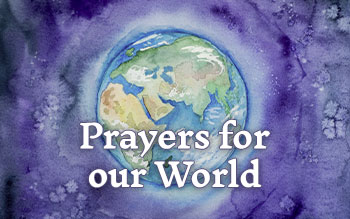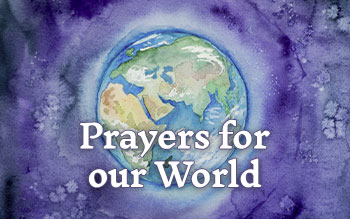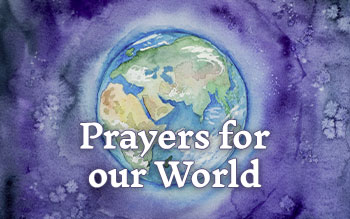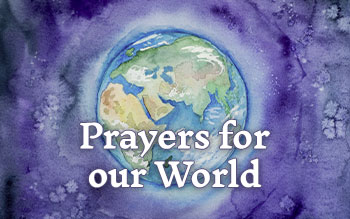Displaying items by tag: Taliban
Afghanistan: Taliban Release Hostages in Exchange For 3 Militants
Two western hostages held for more than three years by Taliban forces in Afghanistan were freed today in south-eastern Zabul province in exchange for three Taliban commanders held by the Kabul government, an Afghan official tells NPR's Diaa Hadid. The official requested anonymity because he is not authorized to speak to the news media.
The Taliban has issued a statement saying they released 10 Afghan soldiers along with the two hostages. The group called the prisoner exchange "a step forward in good-will and confidence building measures" that could help the peace process.
Kevin King, an American, and Timothy Weeks, an Australian, were abducted at gunpoint from a car in 2016 just outside the walls of the American University of Afghanistan, in Kabul. Both worked as teachers at the university.
Last week Afghan President Ashraf Ghani said his government would release three prominent Taliban figures in a deal securing the freedom of King and Weeks.
In an address broadcast on state television, Ghani said he had granted the "conditional release" of three members of the Haqqani network, which is linked to the Taliban.
"We have decided to release these three Taliban prisoners who were arrested outside of Afghanistan," Ghani said, in order "to facilitate direct peace negotiations," The Associated Press reported.
The Taliban figures that were released are Anas Haqqani, Haji Mali Khan and Hafiz Rashid.
Anas Haqqani is the younger brother of the Taliban's deputy leader. He is also the son of the founder of the Haqqani Network, a Sunni Islamist militant organization that's responsible for some of the highest-profile attacks in the Afghan war, including assaults on the Kabul Intercontinental Hotel and the Indian Embassy in Kabul.
He has been in Afghan custody since 2014, when he was arrested in Bahrain, the AP reports.
A Taliban official said the three prisoners were flown to Qatar Tuesday, where the Taliban maintains a political office. The release of King and Weeks was apparently held up until the Taliban confirmed its prisoners had been turned over to its representatives in Qatar.
"Today, the United States welcomes the release of Professors Kevin King and Timothy Weeks," Secretary of State Mike Pompeo said in a statement hours after the release. "Both men were successfully recovered this morning, are in the care of the U.S. military, and will soon be reunited with their loved ones."
While saying that the U.S. "condemns the taking of innocent civilians as hostages," Pompeo also added that the U.S. "welcomes" the Taliban's goodwill gesture.
The American University of Afghanistan said in a statement last week that it was "encouraged to hear reports of the possible release of our two colleagues .... While AUAF is not part of these discussions, we continue to urge the immediate and safe return of our faculty members who have been held in captivity, away from their friends and families, for more than three years."
U.S. Ambassador to Afghanistan John Bass also said last week the U.S. "strongly supported" the release of the three Haqqani commanders, according to Afghan news site TOLOnews.
"This is the latest in a series of courageous steps that President Ghani and the Afghan government have taken to respond to the Afghan people's overwhelming desire for peace," Bass told TOLOnews.
The Taliban released two videos of the hostages in 2017, including one that showed the captives looking sickly, though they appeared healthier in the later video, the AP reports.
A separate attack by the Taliban on the American University in 2016 killed at least seven students and six guards.
President Trump has made a priority of getting American hostages released, and has secured the freedom of about 10 hostages held abroad.
More: https://whro.org/news/5171-taliban-release-american-and-australian-hostages-in-exchange-for-3-militants Written by Laurel Wamsley
Pray: for these continued efforts to warm relations between the parties in Afghanistan and abroad to lead to positive and constructive peace talks.
Pray: for the people of Afghanistan who yearn for a peaceful and safe country.
Afghanistan: crises
On 19 September 30+ civilians were killed and 40+ injured in an air attack that accidentally targeted farmers, and 20+ people were killed in a suicide car bomb that hit a hospital. 74 Afghans were killed every day during August. Unrelenting violence affects almost the entire country. The US/Taliban peace talks have failed, attacks are killing dozens in Kabul, militant sieges trap residents in Kunduz and Pul-e-Khumri, airstrikes by security forces kill innocent civilians, and the Taliban have executed a rights commission’s provincial director. Conflict has displaced 237,000+ people this year, and recent floods following extreme drought have uprooted comparable numbers. Hundreds of thousands of refugees are being forced home, increasing the burden on a fragile state with lowering income, high unemployment, and rising debt. Three million people are experiencing food insecurity; one in six need humanitarian assistance. But in the midst of crises, many displaced Afghans are becoming Christians. See the following article, on suffering but growing church.
Afghanistan and its Future
From an organization working inside the country:
"We need your Prayers urgently for the upcoming presidential elections on 28th September. A complex attack on vice presidential candidate Amrullah Saleh on Sunday, July 28 with at least 30 people dead and was carried out by the Taliban marked to beginning of the presidential election campaign. Saleh is running as vice president with president Ashraf Ghani in the elections and stands for a moderate, anti-Taliban regime. The Taliban and their allies had announced as in previous elections, that they would do all they can to stop or at least seriously disrupt the elections. If God does not intervene it will definitely be again a very violent and deadly election campaign.
Please pray for the right person to be elected. Even the former Taliban support and “butcher of Kabul”, Gulbuddin Hekmatyar, launched his election and pledged that religious scholars will be hired in high-level national decision-making levels with his new government.
While the preparations for the next elections are under way, peace negotiations are going on between the US government and leaders of the Taliban. The Trump administration has so far undertaken eight rounds of negotiations with the Taliban. The US president seems to be very eager to get his troops out of Afghanistan and news just came out that the US government is preparing to withdraw thousands of troops from Afghanistan as part of a proposed peace deal with the Taliban. Pray especially for President Trump and his advisors for discernment and for a firm standing in support of the present and new government in Afghanistan.
We and also many local people we spoke to, are disturbed by so called peace negotiations and are concerned and afraid that the US army will abandon Afghanistan and it would fall back again into the hands of the Taliban. It causes a lot of insecurity and uncertainty with the people. Please pray that no dangerous compromises be made and that the foreign armed forces will support the Afghan Army as long as they are need.
Pray also for the teams. Many Team Members have taken a break or are on furlough. Pray for those who bear the extra load and will stay strong and healthy in the heat.
Please pray for continued strengthening and protection of our local brothers and sisters who have remained in the country and that they would be a strong witness to the many desperate people in Afghanistan
Thank you for interceding with us on these key issues.
Afghanistan: radical Islamists recruit at universities
Since IS was driven out of Iraq and Syria, it appears to have its sights set on Afghanistan. While the Afghan government is engaged in peace talks with the hard-line Taliban movement, radical Islamist groups are spreading their ideology at universities. Basira Akhtar, a 22-year-old student, was beaten up twice earlier this year, at her university in Kabul, when her headscarf slipped from her head. In both cases she was accused of promoting Christianity. An Open Doors analyst says, ‘The core of IS militants in Afghanistan consists of many disgruntled Taliban splinter groups and, reportedly, some returning fighters from Syria. They will try to attack in Afghanistan, just like the Indonesian couple who bombed a cathedral in the Philippines in January. For Christians, this basically means that they need to continue to keep their faith hidden as much as possible.’
Afghan Peace Talks: Politicians, Taliban Cite 'Tremendous Progress' in Moscow
Senior Afghan politicians and the Taliban said they made progress during peace talks in Russia, although they did not make any significant breakthrough.
The May 28-30 talks in Moscow came amid international efforts to end the nearly 18-year war in Afghanistan.
In a May 30 joint statement, the sides said they held "productive and constructive" talks focusing on a possible cease-fire, the "strengthening of the Islamic system," and "women's rights."
"Both sides have had tremendous progress, but some issues require further discussions," the statement read.
Suhail Shaheen, a spokesman for the Taliban's negotiating team, said that "spectacular progress" was made on issues including the withdrawal of international forces and a future political settlement.
However, Ata Mohammad Noor, a powerful regional leader, expressed some disappointment.
"Our expectations were higher," Noor said. "Our main message was on the cease-fire; a cease-fire could be the beginning of peace."
The sides met in Moscow on May 28 for a ceremony during which Russian Foreign Minister Sergei Lavrov called for the complete withdrawal of foreign troops from Afghanistan.
The three-day meeting was the second hosted by Russia in recent months.
Zalmay Khalilzad, the U.S. envoy seeking a peace deal with the Taliban, has held several rounds of talks with the militants in Qatar.
The sides have made progress, but the Taliban has so far rejected direct negotiations with Kabul.
Khalilzad has welcomed Russia’s peace efforts, although some U.S. officials have said Moscow was promoting itself as a power broker to challenge the U.S.-backed peace process with the Taliban.
The Taliban, which continues to stage daily attacks across Afghanistan, now effectively controls or influences about half of the country.
Pray: that all sides will be able to sit around a negotiating table.
Pray: for an end to the daily attacks by the Taliban.
Pray: for all those who are working towards brokering lasting peace in the country.
Pray: for a peace deal to be agreed and for lasting stability and prosperity to return to Afghanistan.
Afghanistan: costs of war and peace
On 12 March, the US and Taliban finished their longest set of talks to date. After sixteen days of negotiating, the US special representative for Afghanistan reconciliation tweeted, ‘Peace requires agreement on four issues: counter-terrorism assurances, troop withdrawal, intra-Afghan dialogue, and a comprehensive ceasefire. We’re now “agreed in draft” on the first two.’ This is a positive development; previously they had only ‘agreed in principle’. The next step is for them to consult with decision-makers for approval of the draft agreement so that it can be finalised. This would pave the way for direct talks between the Taliban and the Afghan government, to address remaining issues. However, these talks have not involved the government, so President Ashraf Ghani’s administration is feeling excluded and suspicious.
Afghanistan: battles still raging
Defence minister Tariq Shah Bahrami has said that battles are ongoing in at least ten provinces. He added, 'To be honest, the level of threat is very high and the current facilities available to security and defence institutions are not enough to repel these threats. The enemies of the people of Afghanistan including the backers of terrorists have made their final plots to break our back.' The Taliban have attacked and conquered several areas of the minority Hazara Shia community, and it is feared that they will commit many atrocities there. They have even targeted their mosques and schools. Many Hazaras are fleeing their villages and coming to the capital. The people are suffering, and wondering how long the army will be able to push back the Taliban.
Afghanistan: ceasefire
On 7 June, president Ashraf Ghani announced a ceasefire with Taliban insurgents until 20 June, coinciding with the end of Ramadan, but said fighting against IS will continue. He added that the ceasefire is an opportunity for the Taliban to realise that their violent campaign is not winning hearts and minds but further alienating people. He recently offered to recognise the Taliban as a legitimate political group, in a proposed political process that he said could lead to ending more than sixteen years of war. At that time he proposed a ceasefire, releasing prisoners, new elections involving the militants, and a constitutional review in a pact with the Taliban, to end a conflict that last year alone killed or wounded over 10,000 Afghan civilians.
Afghanistan - prayers for the security situation
Afghanistan continues to be plagued by suicide attacks, violence and war. Recently more than 100 army and police personnel were killed within a three-day rampage. Government and media offices as well as significant leaders were also targeted. The terrorist groups mainly responsible for this are the Taliban, ISIS and the Haqqani network based in Pakistan. Together these groups are responsible for thousands of deaths each year.
Yet when some of us who have remained within the country recently prayed very specifically about this situation, within days the security forces uncovered a truck loaded with explosives and a house full of weapons thus saving many lives.
We need to maintain this level of specific targeted prayer.
We also need to pray against the external sources which provide all this military hardware.
Finally we also need to pray for our colleagues and national personnel that the Lord will continue to protect and provide for them.
Your prayers powerfully and effectively sustain us all [ James 5:6].
The El Rock Team
60 people killed in mosque attacks(Afghanistan)
A gunman entered a Shia Muslim mosque in Kabul before opening fire and detonating an explosive, killing at least 39 worshippers.
An attack on a Sunni Muslim mosque in Ghor province killed 20 people.
No groups have so far said they carried out the attacks but so-called Islamic State (IS) has previously targeted Shia mosques across Afghanistan.The new attacks bring to at least 176 the number of people killed in bomb attacks across the country this week.
One eyewitness told the BBC that the scene at Kabul's Imam Zaman mosque, in the west of the city, looked like a "front line".Another witness, Mahmood Shah Husaini, said people had been praying when the bomber detonated his explosives.
The attacker is reported to have opened fire as worshippers gathered for Friday prayers, before detonating a bomb.
Kabul police spokesman BasirMojahid confirmed the incident at the Shia mosque in Kabul, but did not give further details.
A spokesman for the Afghan interior ministry said investigators were working at the scene to determine the "nature of the explosion," AFP news agency reports.
The attack on the Sunni mosque in Ghor, central Afghanistan, also killed a pro-government militia commander, according to reports.
Details of the attacks remain unclear and the number of casualties is likely to rise. Dozens of worshippers were also injured, Afghan's health ministry said.
Friday's attacks come just days after police in Kabul said they had arrested a would-be suicide truck bomber, averting a major incident.
In August, more than 20 people were killed in a bomb attack against worshippers in Kabul. IS, a Sunni Islamist militant group, said it had carried out the attack.
A truck bomb in the Afghan capital in May killed more than 150 people and wounded some 400 more, most of them civilians. No group claimed to be behind that attack but the US-backed Afghan government accused the Haqqani group, an affiliate of the country's biggest militant group, the Taliban.
Afghanistan has seen a spate of suicide attacks and bombings in recent months.
There have been four major attacks on Afghan security forces this week alone:
On Thursday, 43 Afghan soldiers were killed after two Taliban suicide bombers in Humvee armoured vehicles destroyed a military base in the southern province of Kandahar. Two police officers were also killed in in Ghazni province
On Tuesday, Taliban suicide bombers and gunmen killed at least 41 people when they stormed a police training centre in the eastern city of Gardez while two police officers
Also on Tuesday, at least 30 people died in car bombings in Ghazni
Afghanistan's army and police have suffered heavy casualties this year at the hands of the Taliban, a Sunni group who want to re-impose their strict version of Islamic law in the country.
Source: BBC - http://www.bbc.co.uk/news/world-asia-41699320









